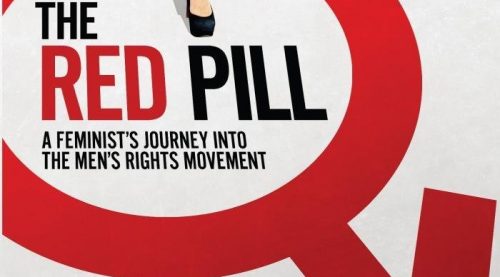Blog Post
How family breakdown has separated men from their children and made them miserable
By Jonathon Van Maren
When filmmaker Cassie Jaye set out to make a film on men’s rights activists, she expected to find a sad collection of anti-feminist failures who were protesting progress because the advancement of women in society made them feel inferior. She’d covered many women’s issues, held all of the boilerplate feminist positions, and found it curious that there were no in-depth documentaries on the men’s rights movement, considering how MRAs are portrayed in the mainstream media.
The Red Pill, which I finally got around to watching some time ago, was the result of about 100 hours worth of interviews Jaye conducted with men’s rights activists. She didn’t find what she expected to find—in fact, the documentary has rendered her largely persona non grata in feminist circles. She was taken aback when one interviewee noted that if men cannot understand the female experience, as feminists understandably assert, then surely it is also true to say that women cannot understand the male experience, either. With that in mind, perhaps they should listen to male perspectives on their experiences, as well.
And the experiences they shared with Jaye were jarring to watch. Men talked about how the family courts were rigged against them, something the stats reveal: 81.6% of women get custody of their children, as opposed to 18.3% of men. Men broke down weeping as they talked about the exquisite pain of having to “visit” their kids as opposed to being able to live with them and raise them and be part of their lives. Often, they said, it was the mother who made the choice to break up the family, against their will, simply because she’d decided to move on.
It reminded me of something Peter Hitchens told me in an interview back in 2013: “In all Western Christian countries, in the late or middle 1960’s, laws came into place which meant that if two parties had voluntarily agreed to swear a marriage oath and take part in that, if one of those parties decided to dissolve the marriage and the other wanted to maintain the oath that they’d sworn, the state had the power, ultimately backed by police force and prison, to drag out of the family home the person who wished to abide by the oath and support the person who wished to break it. It was an enormous eruption of state power in the private life. Absolutely devastating, revolutionary beyond all measure.”
“Men are not upset because they don’t want to be fathers,” one man told Jaye. “They’re upset because they want to be fathers.” In fact, some men are killing themselves because family courts won’t let them see their children while simultaneously forcing them to spend all of their money in parental support or alimony. That, and the brutal reality of having to watch another man raise your children simply crushes many men. Incidentally, 78% of suicides are men. One interviewee was blunt: “It’s an ocean of pain out there.”
Jaye’s documentary presents a different perspective than you’ll usually hear, and offers an essential counter-balance to the prevailing view that in today’s #MeToo era of predatory men and ubiquitous violent porn, only women and girls are suffering. The truth is that everyone is suffering, and that catastrophic breakdown of marriage and family has wreaked unfathomable devastation on millions of people, shredding our cultural fabric and spreading misery like wildfire. Women are suffering. Children are suffering. And men, as Jaye’s essential film points out, are suffering, too.








